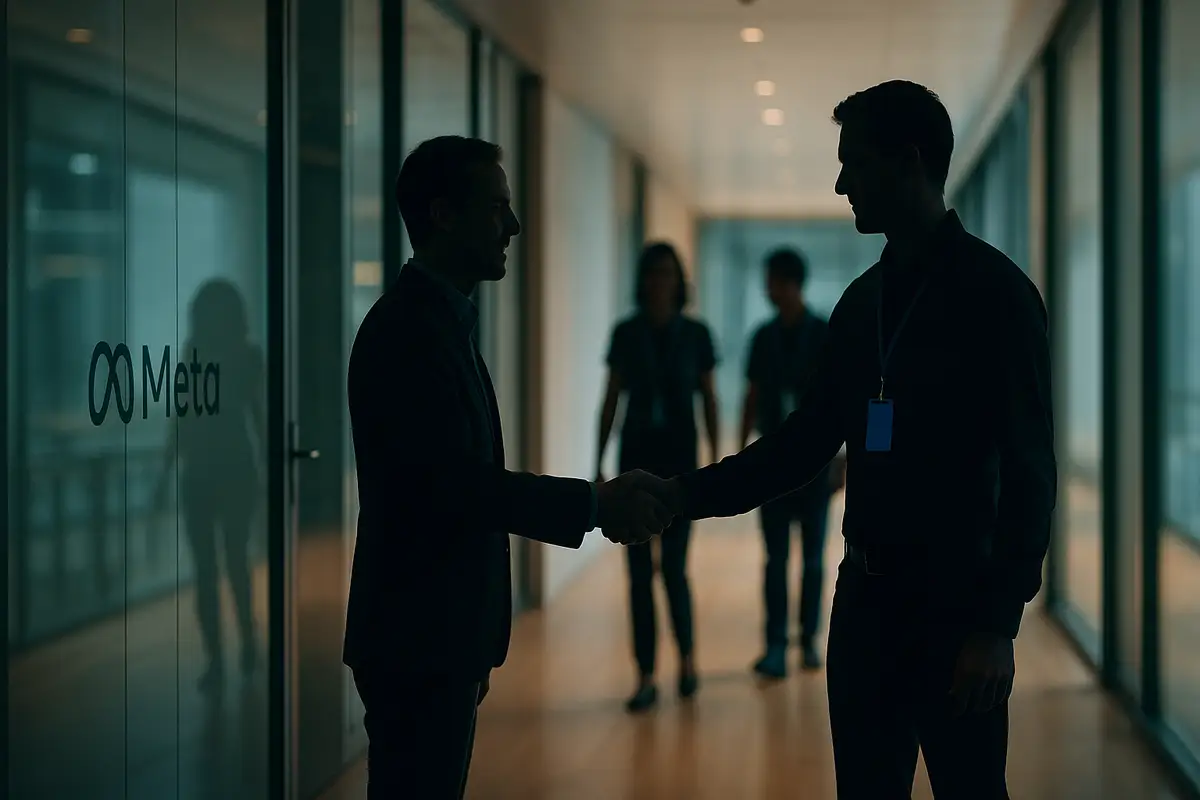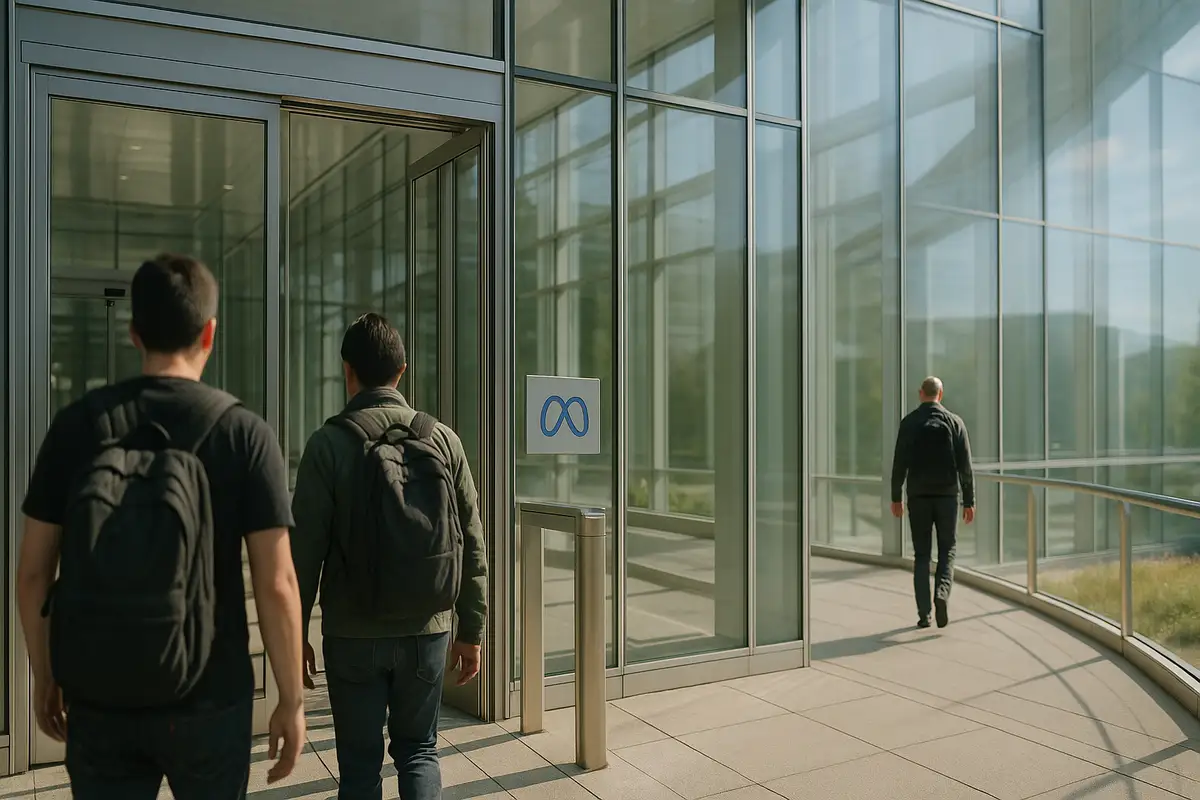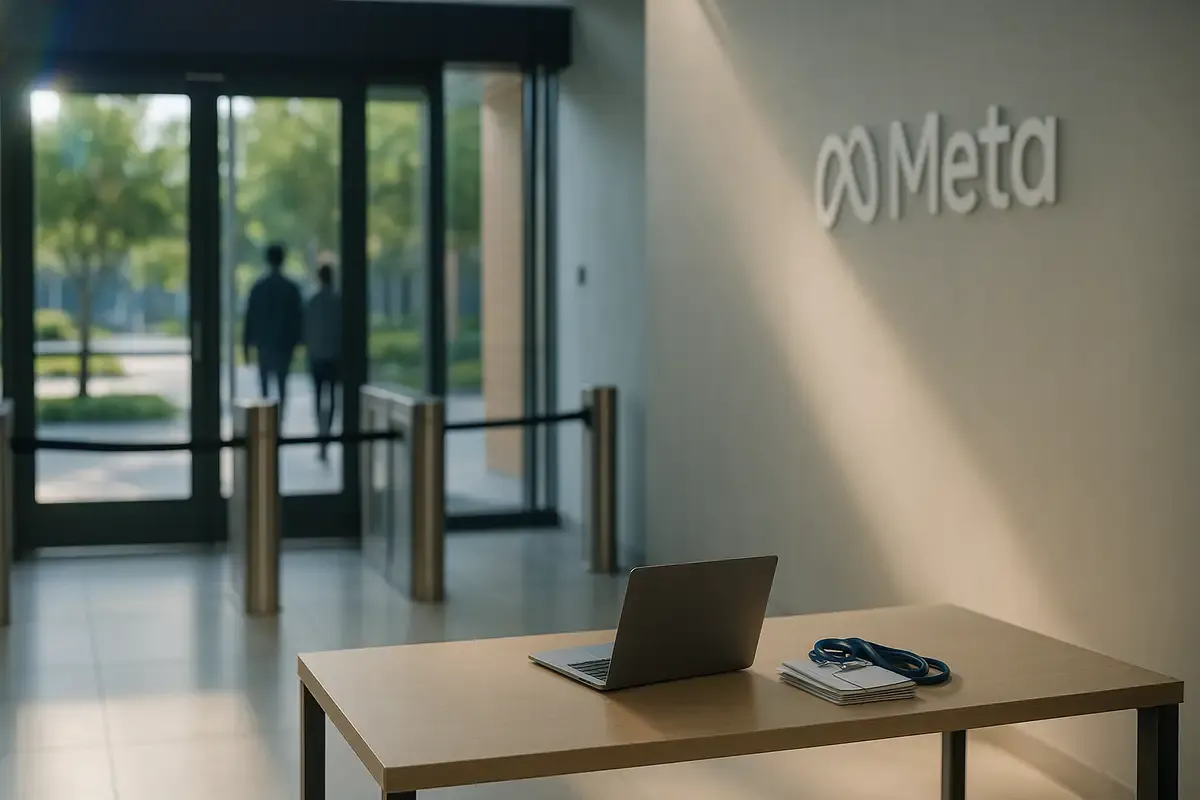💡 TL;DR - The 30 Seconds Version
👉 Meta froze AI hiring last week after offering compensation packages up to $1.5 billion to poach researchers from OpenAI and Google.
📊 The company hired 50+ AI researchers in recent months, with some receiving $100 million signing bonuses in an unprecedented talent war.
🏭 This marks Meta's fourth AI division restructuring in six months, splitting work into four teams under "Meta Superintelligence Labs."
🌍 Morgan Stanley warned that rising stock-based compensation at Meta and Google could reduce shareholder buybacks without clear innovation gains.
💸 An MIT study found 95% of companies get "zero return" from AI investments, while OpenAI's CEO called parts of the boom a bubble.
🚀 The pause signals the AI race is shifting from checkbook recruiting to proving actual products and measurable business results.
After Billion-Dollar Offers, Meta Puts AI Recruiting on Ice
The company paused recruitment across its AI division last week—framed internally as “basic organizational planning”—after months of record offers and a sweeping reorg first detailed in an exclusive Wall Street Journal report on Meta’s hiring freeze. The tension: Meta says this is routine budgeting; markets see a reality check on AI’s cost curve.
The pause, in context
The freeze follows a months-long campaign to poach elite researchers with nine-figure packages and generous stock grants. It also bars many internal transfers within the division, with exceptions requiring approval from chief AI officer Alexandr Wang. That’s a hard stop, not a slowdown.
Meta insists the timing reflects annual planning rather than retrenchment. Investors aren’t convinced.
A broader tech selloff has sharpened questions about AI pay inflation and near-term returns. An MIT-affiliated study making the rounds claimed 95% of companies see “zero return” from AI efforts. OpenAI’s Sam Altman added fuel by calling parts of the boom a bubble. The mood has shifted.
It was bound to happen.
A compensation arms race with limits
Meta’s surge began in April after its latest Llama releases underwhelmed executives. Mark Zuckerberg personally messaged rivals’ scientists on WhatsApp and email, catalyzing eye-popping offers. More than 50 researchers and engineers reportedly joined from OpenAI, Google, Apple, xAI, and Anthropic. That’s a significant brain gain.
Some deals were outliers even by Silicon Valley standards. One top researcher was courted with a package valued as high as $1.5 billion, which he declined. Senior hires saw signing bonuses near $100 million. Rivals publicly questioned whether such guarantees corrode culture.
Not everyone plays that game.
Anthropic’s Dario Amodei told staff he wouldn’t bid up compensation at the expense of internal equity. AMD’s Lisa Su said mission beats money in retaining talent. Their argument: you can’t buy cohesion, and cohesion ships products. It’s a pointed critique of Meta’s approach.
Reshuffling the lab, again
The freeze lands amid the fourth restructuring in six months. Meta’s AI work is now split into four groups under “Meta Superintelligence Labs”: a superintelligence unit dubbed TBD Lab, a products team, an infrastructure team, and Fundamental AI Research (long-horizon projects). One casualty: the AGI Foundations team behind Llama was dissolved after disappointing results.
Wang, secured via Meta’s $14-billion stake in Scale AI, now leads the lab. The new architecture concentrates high-priced hires in TBD Lab while trying to stabilize the rest of the portfolio. It signals a bet: smaller, “talent-dense” teams over sprawling headcount.
Reorgs carry cost. So do delays.
At least three former Llama leaders announced departures around the August vesting date. Internally, tensions have flared between lavishly paid newcomers and veteran researchers. Integration is a skill; it’s not the same as recruiting.
The investor math
Stock-based compensation has surged as AI hiring intensified. Morgan Stanley warned this week that rising SBC at Meta and Google could reduce room for buybacks and, absent clear breakthroughs, dilute shareholder value. That doesn’t mean spending is wrong. It means the hurdle rate got higher.
This is the capital cycle reasserting itself. Meta is also committing tens of billions to data centers and GPUs, stacking fixed costs atop expensive talent. If timelines slip, operating leverage cuts both ways. If breakthroughs land, the upside is equally nonlinear.
Markets price both paths. Daily.
What changes now
Meta’s line is that the freeze is a digestion period: place the new hires, harden the roadmap, and budget for 2026. That’s plausible. It’s also an admission that signing stars isn’t a strategy by itself. The next phase is execution: model reliability, inference economics, and shipping products users actually adopt at scale.
Expect the tone to cool across the industry. A single company pause won’t end the talent war, but it may cap the most extravagant packages and slow “reverse acquihires.” The focus shifts from acquisition to output.
That’s the right test.
Why this matters:
- The AI race is moving from checkbook recruiting to operational proof, where inference costs, reliability, and ship cadence decide winners.
- Rising stock-based pay changes tech’s capital story: investors will demand measurable product gains, not just marquee hires.
❓ Frequently Asked Questions
Q: How much did Meta actually spend on these AI hires?
A: Meta hired 50+ researchers with packages reaching $100 million for signing bonuses. The company paid $14 billion for a 49% stake in Scale AI to secure CEO Alexandr Wang. One researcher was offered up to $1.5 billion total compensation but declined. Exact total spending wasn't disclosed.
Q: What exactly is "superintelligence" that Meta is trying to build?
A: Superintelligence refers to AI systems that surpass human cognitive abilities across all tasks. Meta's vision involves a "personal superintelligence" acting as a permanent assistant in smart glasses, distinct from centralized AI that automates work. The TBD Lab houses most of Meta's superintelligence research efforts.
Q: How do Meta's AI spending levels compare to other tech companies?
A: Meta's $100 million signing bonuses exceed typical industry standards. OpenAI CEO Sam Altman called Meta's compensation strategy "crazy." Anthropic and AMD explicitly refused to match Meta's packages, with Anthropic's CEO saying such spending could "destroy" company culture through unfair treatment.
Q: What happened to Meta's previous AI team that was dissolved?
A: The AGI Foundations team, responsible for developing Meta's Llama language models, was completely dissolved after their April 2025 release underperformed expectations. At least three team leaders announced departures around Meta's August 15 vesting date, according to internal company posts.
Q: Will this hiring freeze delay Meta's AI products and timeline?
A: Meta positions this as a "digestion period" to integrate new hires rather than a delay. The company restructured AI efforts into four specialized teams and aims to focus on execution over recruitment. However, this marks the fourth reorganization in six months, suggesting ongoing uncertainty about optimal structure.















